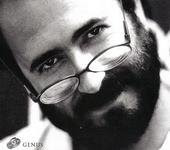PALABRAS DE HOLLY NEAR PARA EL CONCIERTO DEL LUNES 9....
The social change music movement in the United States
has a long and powerful tradition. The songs come out of the political communities working for change at home as well as in solidarity with struggling communities around the world. Some of the songs provide a cultural connection for immigrants back to their country of origin. Some come directly from the very diverse (so called "melting pot" ) styles reflected the multi-cultural population. A few of the songs got national and international attention back when radio stations and record companies were still owned by people and not corporations. There have also been times in history when the songs were intentionally silenced. However, many artists continued to sing the songs in spite of the difficulties. Of course, this is very familiar to the people of Chile. Interestingly, one of the most silenced times may be the last 20 years! The political song movement is alive and well and perhaps in this new era, the songs will be more widely heard than during the Bush Administration.
My great appreciation to Eduardo Peralta for his presentation of some songs from the political tradition of the USA. Two of the artists he is presenting are great heros among the older people. Phil Ochs and Woody Guthrie. They are not so well known by the younger ones. However, this is starting to change. Phil's sister takes a tour of musicians around the country to present Phil's songs, songs that are still very relevant. And Woody Guthrie's songs, This Land Is My Land was sung at a large rock concert in Washington, DC for the inauguration of Barak Obama. Bruce Springsteen invited Pete Seeger to lead the song and hundreds of thousands of people gathered sang along.
Woody Guthrie - Woody was born in 1912. He sang all over the country. Written on his instrument was "This Machine Kills Fascists". Woody was perhaps most famous for his work during the depression. He rode the railroad trains in box cars and sang with poor unemployed people, helping them to carry on. He wrote many songs about the great dust storms in Oklahoma and the migrants who moved to California in search of work. He had 8 children, one of whom is Arlo Gurthrie who is a wonderful contemporary artist working in US today. Woody Guthried died of Huntington's disease. However, he left a huge collection of songs which most social change artists working to today in the USA still sing. His song, This Land Is Your Land, was sung at the at a large rock concert in Washington, DC for the inauguration of Barak Obama. Bruce Springsteen invited Pete Seeger to lead the song and hundreds of thousands of people gathered sang along. Among progressives, this song is often preferred to the National Anthem as there is no celebration of bombs bursting in air!
Often the women artists of this time go uncelebrated. But it should be mentioned that the work of Odetta and Dr. Bernice Johnson Reagon has been hugely important in the the Civil RIghts, Peace and Feminist movements.


0 Comments:
Post a Comment
<< Home